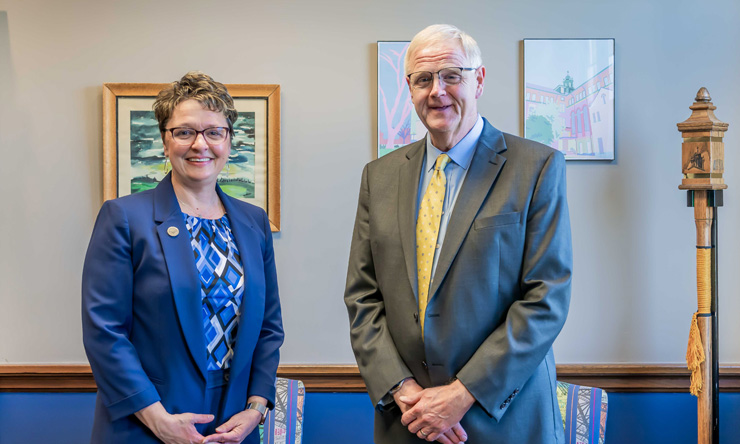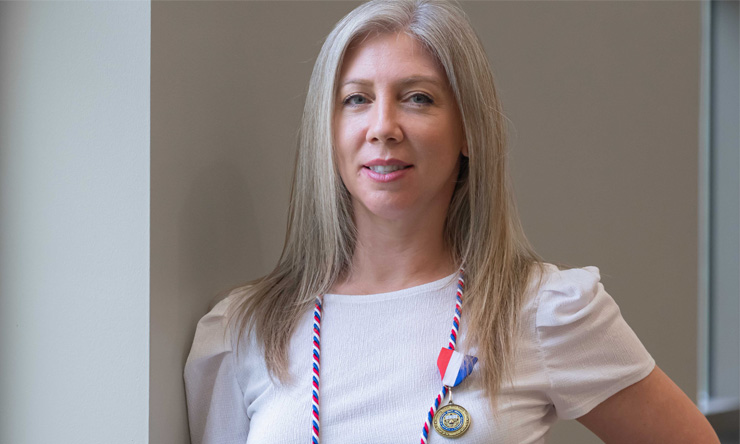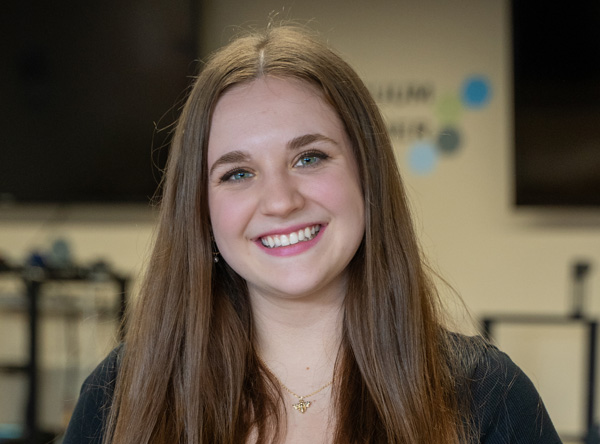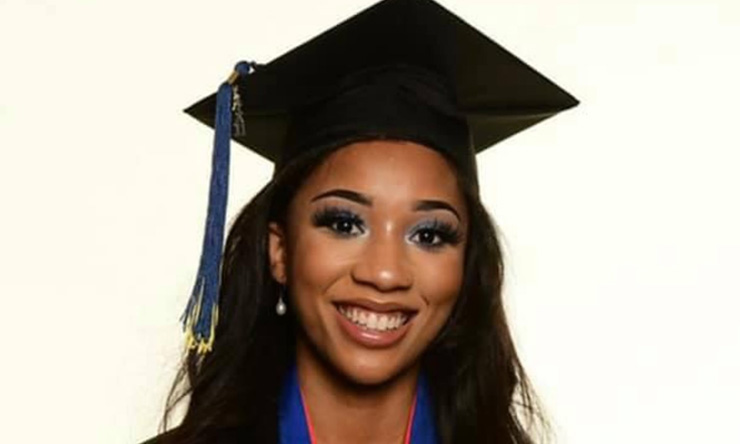Looming 40 feet over hard-scrabble, war-scarred neighborhoods, a total of 88 "peace walls'' serve both as enduring divides and towering symbols of the still simmering differences between Catholics and Protestants in Northern Ireland.
Their number actually has doubled in the 14 years since the historic Good Friday peace accords of 1998 seemed to settle a 40-year civil war better known as "The Troubles."
"To me, that says reconciliation is failing miserably," said St. Ambrose Theology Professor Mara Fitzgibbon Adams '82, '95 MPS, PhD.
Reconciliation is at the heart of Adams' interest in Northern Ireland, a land she visited each of the past two summers and one she saw again in March along with SAU History Professor Ryan Dye, PhD, and six study abroad students.
Adams and Dye arranged the trip in conjunction with "Forgiveness, Reconciliation and Peace-Building," a course Adams has been teaching since 2009. The class was developed in concert with educators at the University of Wisconsin-Madison and St. Mary's University College in Belfast. But, increasingly, the program's lessons seem lost in Northern Ireland.
"Although there is a political agreement in place and the major paramilitary groups have put down their weapons, the two communities still distrust each other to the point that they feel like they need to build walls," said Dye, who teaches an Irish Studies minor at St. Ambrose and provided the six students an overview of Northern Ireland's history in advance of the trip.
Dye has been to Northern Ireland six times himself. All of those visits have come since the 1998 accords, he said, "so I don't have a point of comparison." But natives have told him that, at the height of "The Troubles," getting into the city centers of Belfast and Derry was like passing through security at a modern airport.
British soldiers no longer patrol the streets and both city centers now are thriving with commerce. But more than those towering "peace walls" telegraph unresolved conflict.
Adams, who hopes to write a book about the ongoing struggle for real peace and reconciliation in Northern Ireland, said she witnessed an escalation of violence the past two summers, and got a frightening first-hand view of the divisions last year. She said a member of the still all-Protestant police force stopped the car in which she was riding alongside an Irish priest to inform them of an accident ahead. "But he didn't have a revolver," she said. "He had a sub-machine gun. And he approached the car with it drawn."
In March, however, students met veterans of the pre-1998 fighting from both sides of the conflict and found a determination to keep the peace alive.
"We talked to people who their entire lives had been affected by this conflict," said Rebecca Hauge, an SAU sophomore from Sugar Grove, Ill. "In some cases, they still held to their beliefs but they weren't acting on them."
Students Hauge, Jennifer Baran, Brendan Bezetzny, Michelle Cassady, Lindsay Haddad and Laurel Whitford also may have happened across the ultimate solution in talking to younger natives.
"They just said ‘I have friends on this side and friends on that side and I am friends with all of them,''' said Whitford, a junior from Cambridge, Ill. "It's not from their time period. Before I went, I didn't think it would ever change because it was so ingrained. Because I met those (young) people, I think there is more of a chance for peace."
Education Together
We are pleased to announce that St. Ambrose University has signed a new joint agreement with Mount Mercy University as we explore a potential strategic combination. We celebrate this exciting news not only for each of our universities and our communities, but also for the region.
Share This Story




